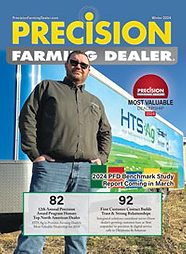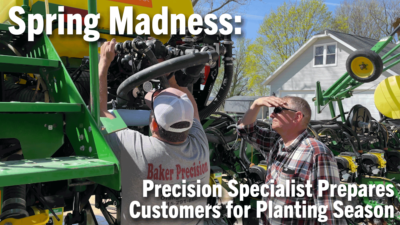In September, I will be cutting the last electronic check for our family sedan, after what has seemed like an eternity of monthly payments. Thankfully, the car should outlive the term of the loan (knock on wood) and provide transport to many a baseball practice or weekend getaway in the future.
But inevitably, another automobile will be needed and with it comes the question of lease or buy? I know there are advantages to both, and I’m sure plenty of research will be conducted in advance of a decision.
This upcoming dilemma got me thinking about the current ownership quandary tied to precision farming data. Much has been written lately about the ongoing debate as to who (or what) can lay claim to the valuable information collected by technology in the field.
Our most recent online dealer poll asked readers to take a stance on precision data ownership. The vast majority (73%) say that farmers own any and all information collected on their operation, no questions asked.
But 25% say that certain circumstances allow for shared ownership of farm data, in the interest of increasing yields or advancing seed and/or fertilizer technology. This position leaves a lot of room for interpretation and maneuvering, but I suspect that if farmers are seeing double-digit yield increases or slashing their input costs by 30%, shared ownership of data might be worth it.
While precision farming dealers likely aren’t looking to own customers’ data, they certainly can influence its usefulness and purpose. Sometimes this can be done with a precision farming specialist, but it’s becoming more common for dealerships to hire or partner with agronomists.
A recent poll in our sister publication Farm Equipment found that 76% of respondents have someone on staff who handles agronomy issues for equipment customers. Whether dealers like it or not, farm data is routinely passing through their electronic fingers and it’s important to know what can and should be done with it.
Plenty are wrestling with this challenge, not only from a liability perspective, but also from a profitability standpoint. Talking with a precision farming consultant at a Midwest firm recently, he says dealers can strive to be data “caretakers” for their customers.
“Dealers can’t be scared of data, but they also can’t manipulate it,” the consultant says. “What they can do is help their customers understand what to do with it.”







Post a comment
Report Abusive Comment